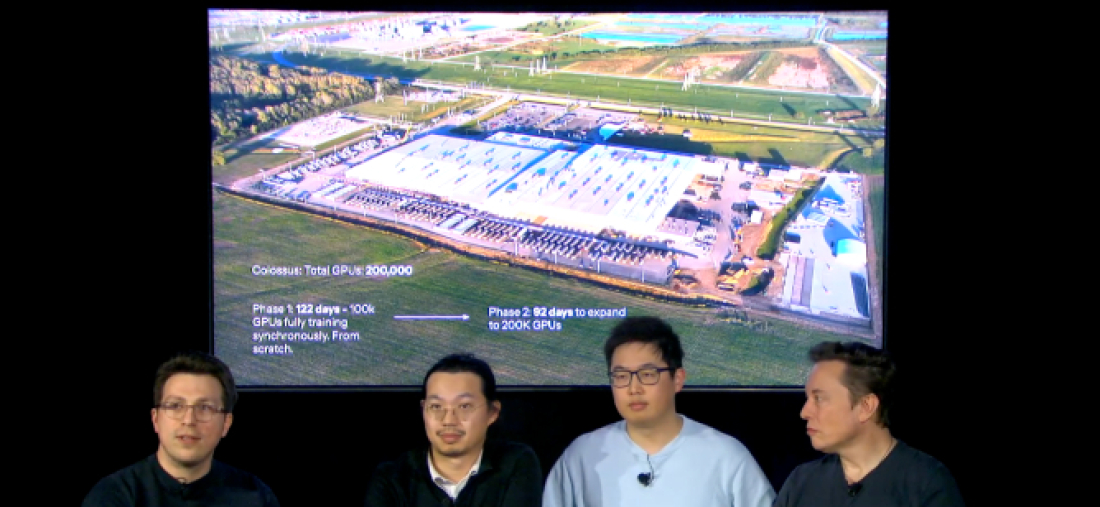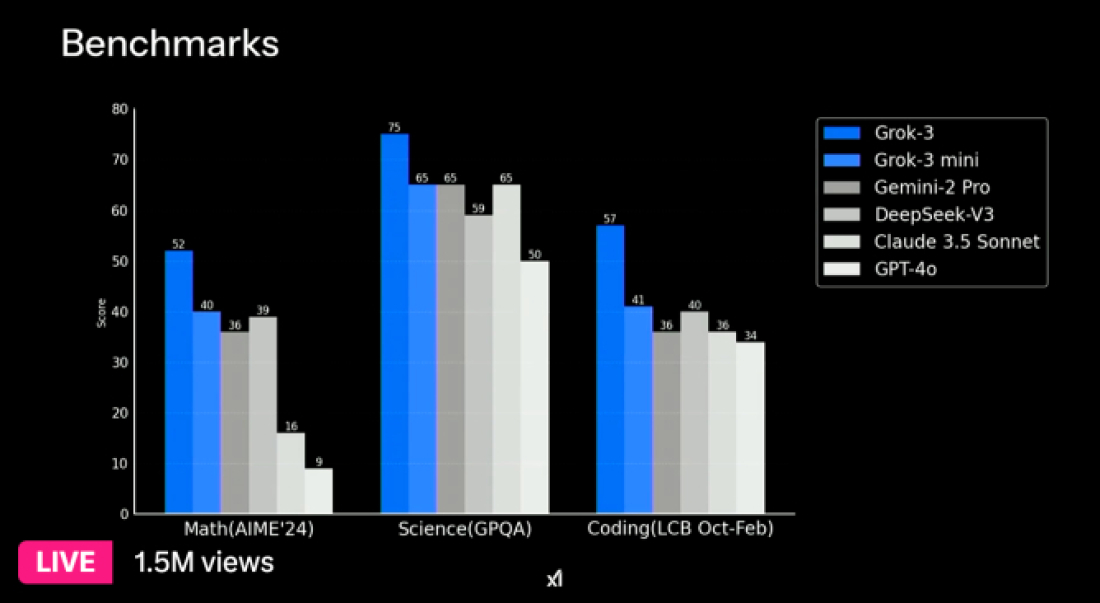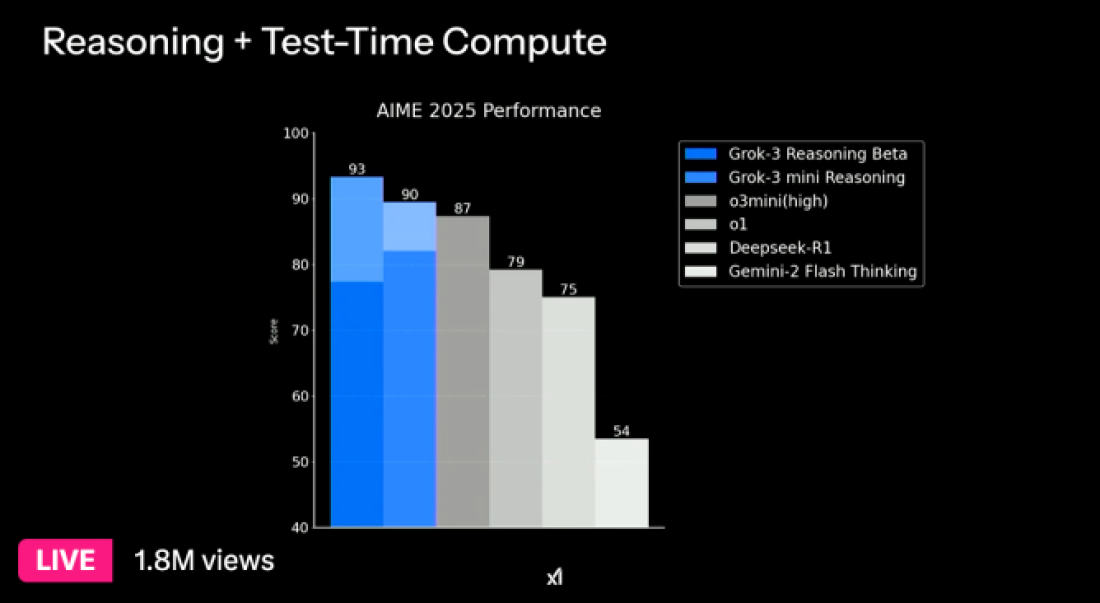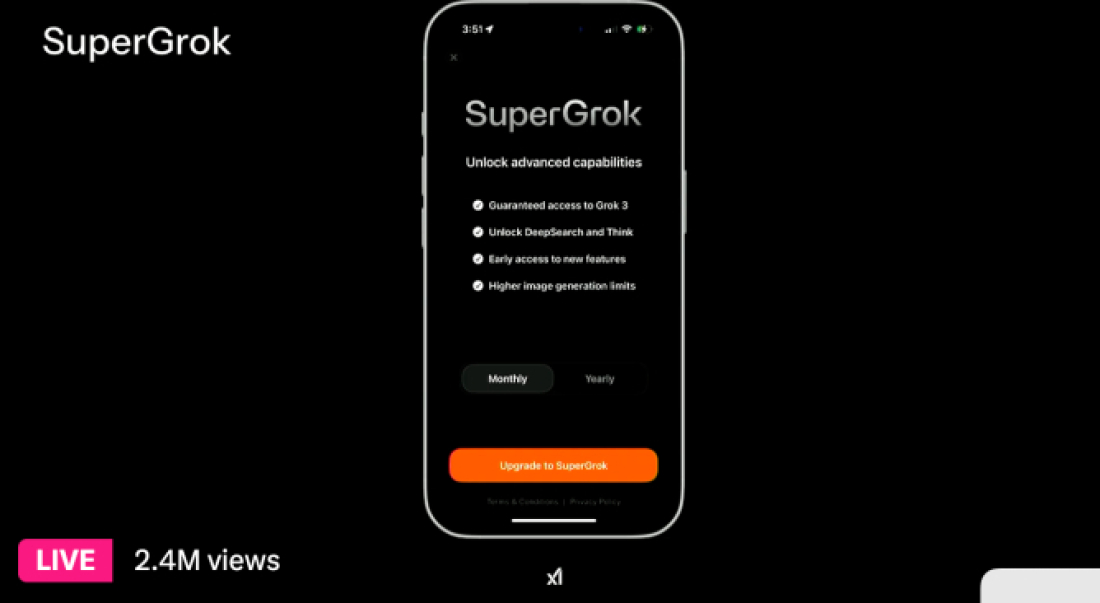Beijing confirms Chinese national killed in Iran, urges restraint
China expressed serious concern over the escalating conflict in Iran, confirming that one Chinese national was killed in Tehran. Bei...
February 23, 2025 – Elon Musk’s AI company, xAI, has launched its latest flagship AI model, Grok 3, unveiling new capabilities for its Grok iOS and web applications.
Grok 3, positioned as a competitor to OpenAI’s GPT-4o and Google’s Gemini, offers enhanced reasoning capabilities and image analysis, further integrating with Musk’s social network, X.
Grok 3: enhanced AI capabilities
Grok 3 has been in development for months and was initially slated for release in 2024 but experienced delays. The model was trained using an enormous data center in Memphis containing approximately 200,000 GPUs. According to Musk, the new model was developed with “10x” more computing power than its predecessor, Grok 2, leveraging a more extensive training dataset, including legal filings.

“Grok 3 is an order of magnitude more capable than Grok 2,” Musk stated during a live-streamed presentation. “[It’s a] maximally truth-seeking AI, even if that truth is sometimes at odds with what is politically correct.”
Grok 3 model variants and features
The Grok 3 family includes multiple versions:
Grok 3 mini: Offers faster response times at the cost of some accuracy.
Grok 3 Reasoning & Grok 3 mini Reasoning: Designed to carefully “think through” problems, similar to OpenAI’s o3-mini and DeepSeek’s R1. These models aim to fact-check themselves before responding, improving accuracy.
Grok 3 is currently rolling out in phases, with some features still in beta. The new models reportedly outperform GPT-4o in AI benchmarks such as AIME (mathematics performance) and GPQA (graduate-level science questions). Additionally, xAI claims that Grok 3 Reasoning surpasses OpenAI’s o3-mini-high in mathematics assessments, including AIME 2025.

New capabilities: DeepSearch and Reasoning enhancements
The reasoning models power DeepSearch, xAI’s AI-powered research tool, which scans the internet and X to generate detailed abstracts in response to user queries. Users can activate Grok 3’s enhanced reasoning through:
“Think” mode: For complex questions requiring deeper analysis.
“Big Brain” mode: A high-compute setting designed for advanced problem-solving.
To prevent unauthorized knowledge extraction, xAI has partially obscured the reasoning models’ thought processes in the Grok app. This measure follows recent controversies, such as DeepSeek’s alleged distillation of OpenAI models.

Subscription tiers and upcoming features
Grok 3 will first be available to X Premium+ subscribers ($22/month), while advanced features will require a new SuperGrok plan, reportedly priced at $30/month or $300/year. This premium tier grants additional reasoning queries, DeepSearch access, and unlimited image generation.

Upcoming enhancements include:
Voice Mode (within a week): A synthesized voice for Grok models.
Enterprise API Access (within weeks): xAI will offer Grok 3 and DeepSearch via API for business integration.
Future Open-Source plans and political neutrality pledge
Musk announced that xAI intends to open-source Grok 2 in the coming months, following a pattern where previous models are made public once new versions become stable.
“When Grok 3 is mature and stable, which is probably within a few months, then we’ll open-source Grok 2,” Musk confirmed.
Grok was initially marketed as an “edgy” and “unfiltered” AI model that could answer controversial questions other models avoided. However, past versions hedged on political topics, with one study suggesting a left-leaning bias on issues such as transgender rights and diversity programs. Musk has attributed this to training data limitations and has pledged to shift Grok toward greater political neutrality. Whether xAI has achieved this goal remains unclear, but the company continues to push boundaries in AI development.
As Grok 3 rolls out, its real-world performance and reception will determine its place in the competitive AI landscape.
Follow the latest developments and global reaction after the U.S. and Israel launched “major combat operations” in Iran, prompting retaliation from Tehran.
Ayatollah Alireza Arafi has moved into a pivotal constitutional role following the death of Supreme Leader Ayatollah Ali Khamenei, becoming the clerical member of Iran’s temporary leadership council under Article 111 of the Constitution of the Islamic Republic of Iran.
Governments across the region responded swiftly to Israel’s strikes on Iran, closing airspace, issuing travel advisories and activating contingency plans amid fears of escalation.
A senior Iranian official has warned Israel to “prepare for what is coming”, insisting that Tehran’s response to the latest escalation in the Middle East will be made openly and without limits.
The United States and Israel have carried out large-scale strikes on Iranian leadership and military targets, with Iranian state media confirming that Supreme Leader Ayatollah Ali Khamenei was killed.
South Korea will soon cease to be one of the few countries where Google Maps does not function fully, after its security-conscious government reversed a two-decade-old policy and approved the export of high-precision map data to overseas servers.
New research suggests 40,000-year-old carved objects from south-western Germany bear repeated marks arranged in organised sign sequences similar to early proto-cuneiform, although they are not regarded as a form of writing.
The chief executive of Google DeepMind, Demis Hassabis, has called for more urgent research into the risks posed by artificial intelligence, warning that stronger safeguards are needed as systems become more advanced.
NASA successfully completed a critical fueling rehearsal on Thursday (19 February) for its giant moon rocket, Artemis II, after earlier hydrogen leaks disrupted preparations for the next crewed lunar mission. The launch is scheduled for 6 March, according to the latest information from NASA.
ByteDance will take steps to prevent the unauthorised use of intellectual property on its artificial intelligence (AI) video generator Seedance 2.0, the Chinese technology firm said on Monday.
You can download the AnewZ application from Play Store and the App Store.

What is your opinion on this topic?
Leave the first comment